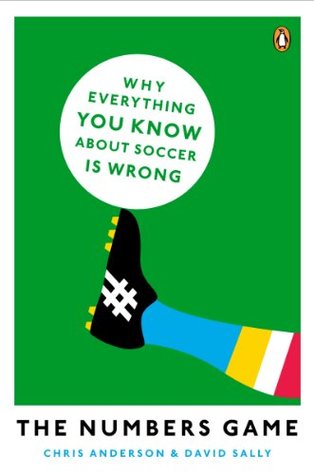More on this book
Community
Kindle Notes & Highlights
Read between
March 12 - May 29, 2019
Our personal theories and views are naturally confirmed: we do not believe it when we see it; rather, we see it only when we believe it.
In American football, there is a score every nine minutes on average; in rugby, it is every twelve and a half minutes; and in hockey, every twenty-two. In soccer, a team scores a goal once every sixty-nine minutes. Soccer is a sport of deferred gratification.
Tell me how you play and I’ll tell you who you are. For many years soccer has been played in different styles, expressions of the personality of each people, and the preservation of that diversity is more necessary today than ever before.”
a beggar for good soccer. I go about the world, hand outstretched, and in the stadiums I plead: “A pretty move, for the love of God.” And when good soccer happens, I give thanks for the miracle and I don’t give a damn which team or country performs it.”
Good teams are not better at passing than bad ones. They simply engineer more easy passes in better locations, and therefore limit their turnovers.
Eric Johnson liked this
found a man in the same color shirt as them just 60 percent of the time; that’s only 10 percent better than pure chance.
They were, in that sense, possession purists. They knew they had real possession only when their opponent put the ball out of play. Everything else was too uncertain. And so they maximized the one time that they controlled the ball absolutely: during set pieces.
“It was about exploiting qualities. So, for example, we knew that Zidane, Raúl and Figo didn’t track back, so we had to put a guy in front of the back four who would defend. But that’s reactionary soccer. It doesn’t multiply the players’ qualities exponentially. Which actually is the point of tactics: to achieve this multiplying effect on the players’ abilities.”
the match is decided by luck (of course), then by who’s at home, then by which team has the higher average talent level, and then by which club has the narrower spread of talent.
This was a joyous moment, in which I understood an important truth about the world: because we tend to reward others when they do well and punish them when they do badly, and because there is regression to the mean, it is part of the human condition that we are statistically punished for rewarding others and rewarded for punishing them.22


